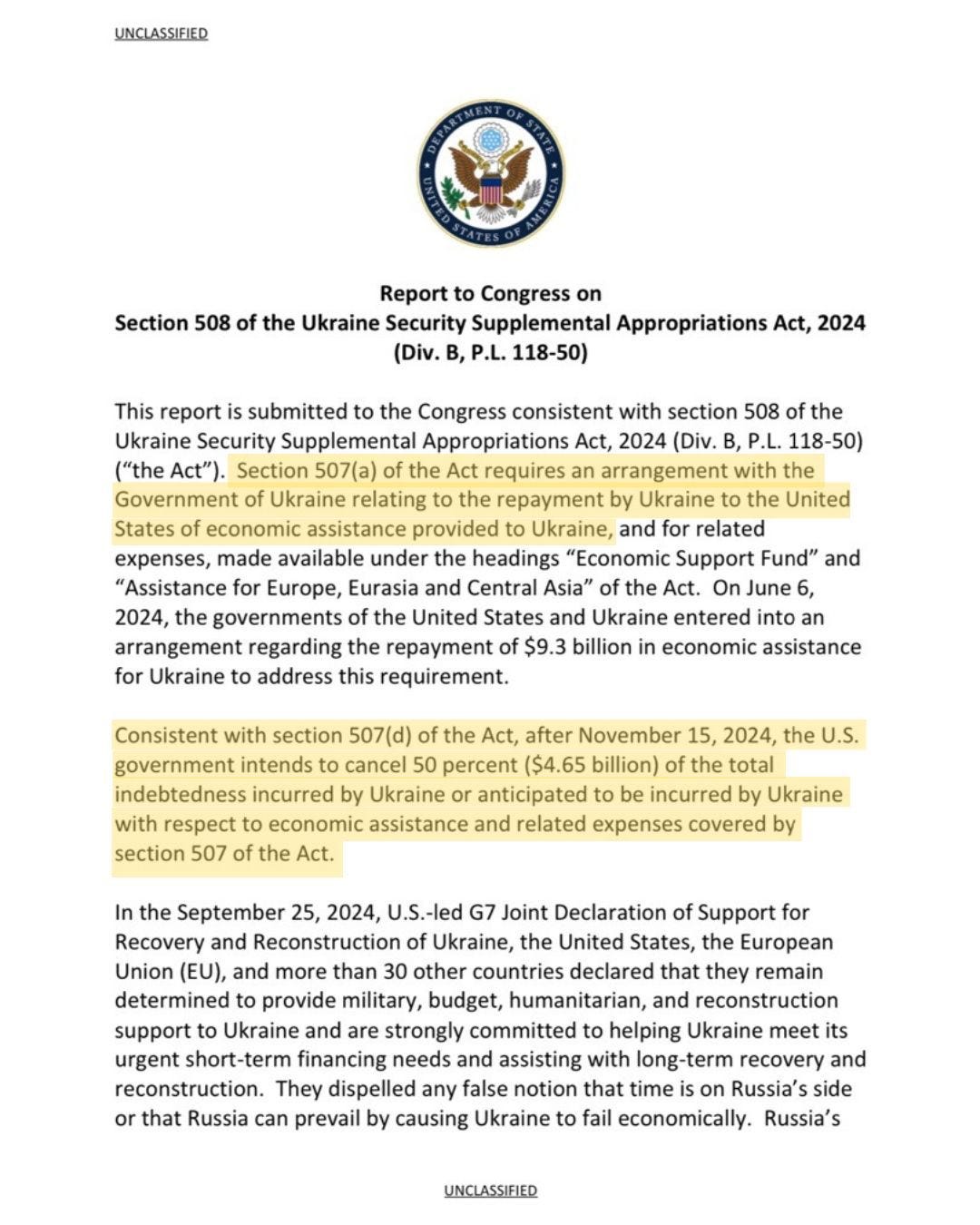WASHINGTON — A recent decision by the U.S. government to forgive $4.65 billion in debt owed by Ukraine has sparked sharp criticism from lawmakers who argue that the move wastes taxpayer money and prioritizes foreign interests over domestic needs.
The debt cancellation, part of the Ukraine Security Supplemental Appropriations Act of 2024, forgives 50% of the $9.3 billion in economic assistance previously provided to Ukraine. Critics say the decision comes at a time when many Americans are struggling with rising costs of living and growing concerns over government spending.
I can't continue bringing you independent journalism without your support. For just $5 a month, you can become a paid subscriber and help sustain this work for everyone. You can cancel anytime, but your support makes a difference in keeping this content free and accessible to all.
“This is an insult to every hardworking American,” Rep. Matt Rosendale, R-Mont., said in a statement. “The Department of State just told Ukraine they can keep $4.65 billion in hard-earned taxpayer money they were supposed to pay back. Enough is enough! I am tired of our money being wasted on endless foreign wars.”

Debt Forgiveness Amid Domestic Challenges
The forgiven debt is tied to funds designated for economic support and recovery in Ukraine as the country continues to battle Russian aggression. The U.S. Department of State argued the decision aligns with international efforts to rebuild Ukraine and ensure its financial stability. In September, the U.S. joined more than 30 nations in pledging long-term financial and military support for Ukraine, despite growing domestic pushback.
However, critics say the move highlights misplaced priorities, as the U.S. grapples with its own financial challenges, including a soaring national debt, inflation, and unresolved infrastructure needs. Opponents of the decision argue that billions of dollars in aid and loan forgiveness could be better spent addressing issues at home.
“This is another example of the American taxpayer being forced to foot the bill for foreign policy experiments,” said Rep. Lauren Boebert, R-Colo. “At a time when our own borders, infrastructure, and families need support, why are we giving Ukraine a blank check?”
Supporters Defend Decision
Supporters of the move insist that aiding Ukraine is critical to global security and defending democracy against authoritarian regimes. They argue that failing to support Ukraine could embolden Russia and other adversaries, creating a larger and costlier conflict in the future.
“This isn’t just about Ukraine; it’s about maintaining global stability,” said a State Department spokesperson. “Our commitment to Ukraine is a commitment to democracy, freedom, and long-term peace.”
A Divided Congress
The debt forgiveness is expected to intensify debates in Congress over U.S. involvement in Ukraine and the allocation of foreign aid. With federal spending under scrutiny, critics of the decision are calling for increased transparency and limits on future commitments.
“We cannot continue to spend billions abroad while ignoring our problems at home,” Rosendale said. “Americans deserve to know where their money is going and why.”
The growing divide in Washington underscores a broader debate about America’s role on the global stage and how far it should go to support allies at the expense of domestic priorities. As the 2024 election cycle ramps up, foreign aid is poised to remain a flashpoint in political discourse.




















